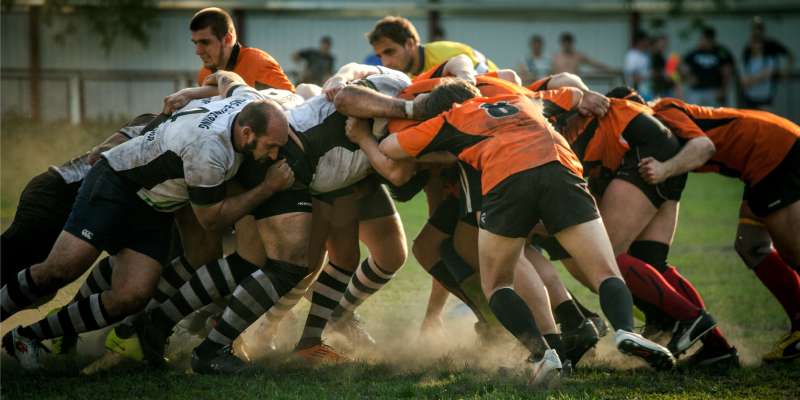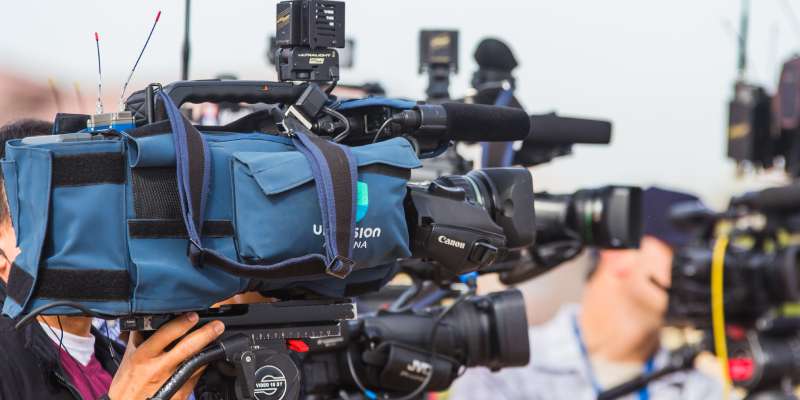Is this a Rugby Game or Media Training?

April 23, 2015
I must admit that I’m not a huge sports fan. I enjoy going to the occasional sports event with my husband, but often it’s the spectacle or the food that capture my attention more than the game itself. Just to save face, let me say that I do understand the rules of tennis and most team sports like baseball, hockey, soccer and basketball. Okay, okay…not so much when it comes to football or rugby.
What I know about rugby.
As a wannabe fashionista, I’m familiar with rugby shirts. Almost everything else I know, I get from Wikipedia.
“Rugby is a style of football that was developed at the Rugby School and was one of many versions of football played in English public schools during the 19th Century.”
It continues to be popular around the world with international championships every four years.
How rugby relates to media interviews.
Long before I looked up rugby on Wikipedia, I was regularly using the word “scrum”. In rugby, scrum is short for scrummage and refers to a method of restarting play that involves players packing closely together with their heads down and attempting to gain possession of the ball. In the media, a scrum is a type of group interview. (These days, scrum also refers to a software development methodology, but that’s a comparison for another post.)
Scrum as a noun, verb and adjective.
When I was a reporter, I was often among those in a media scrum which sort of looks like a rugby play because the person being interviewed is surrounded by reporters who are seriously invading their personal space and bombarding them with questions. Like my colleagues, I used the word scrum in many ways. We talked about giving a scrum, being in a scrum, something being scrum-like and someone being scrummed.

Tips on how to master a scrum.
- Remember that you’re the boss. Don’t let the reporters take over.
- You can dictate the pace.
- Have an exit strategy. Don’t be forced into a corner.
- If you wish, you can begin with a short statement, but it’s not necessary. • Avoid concentrating on one reporter.
- Try to look at the person asking the question, but be aware of the cameras so you’re not being shot in full profile. It’s less flattering.
- If you know a certain media outlet is broadcasting “live”, offer them the first question.
- You can limit your exposure, but give the reporters a reasonable amount of time.
- Keep your answers brief and to the point because you’re dealing with different reporters with different needs. Those who need more will ask another question.
- Just because you don’t like the questions, don’t run away.
Sometimes, scrums happen naturally, but they can also be scheduled. They can be a useful media relations tool because you can talk to a number of reporters all at once. This can save you time and energy. And, even though the scrum can seem like a rather aggressive type of interview, if you follow the media training tips I’ve given you, it doesn’t have to be brutal. Remember, it’s a media interview not a rugby game.


